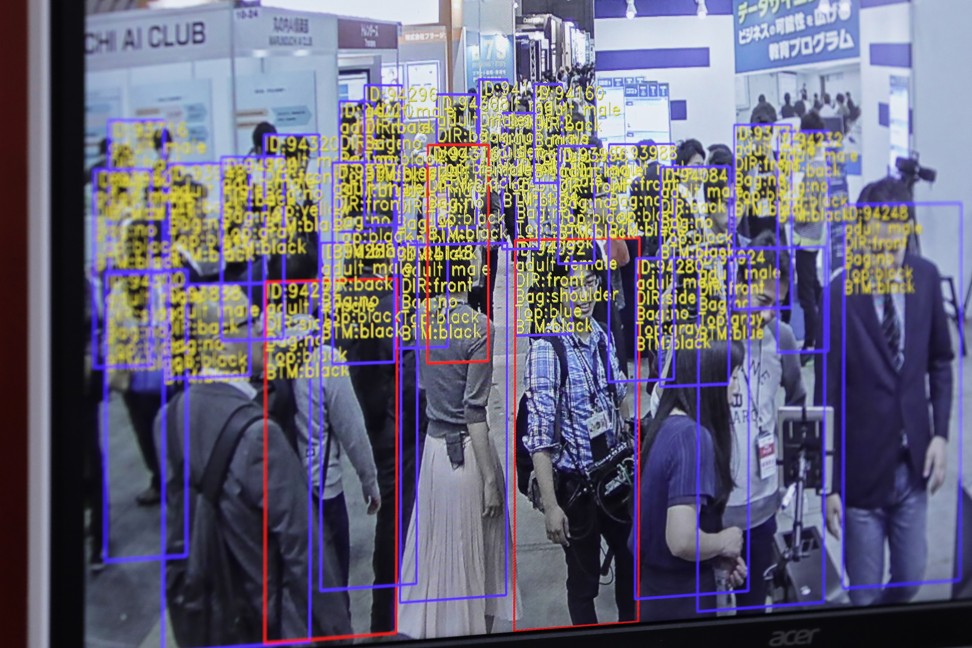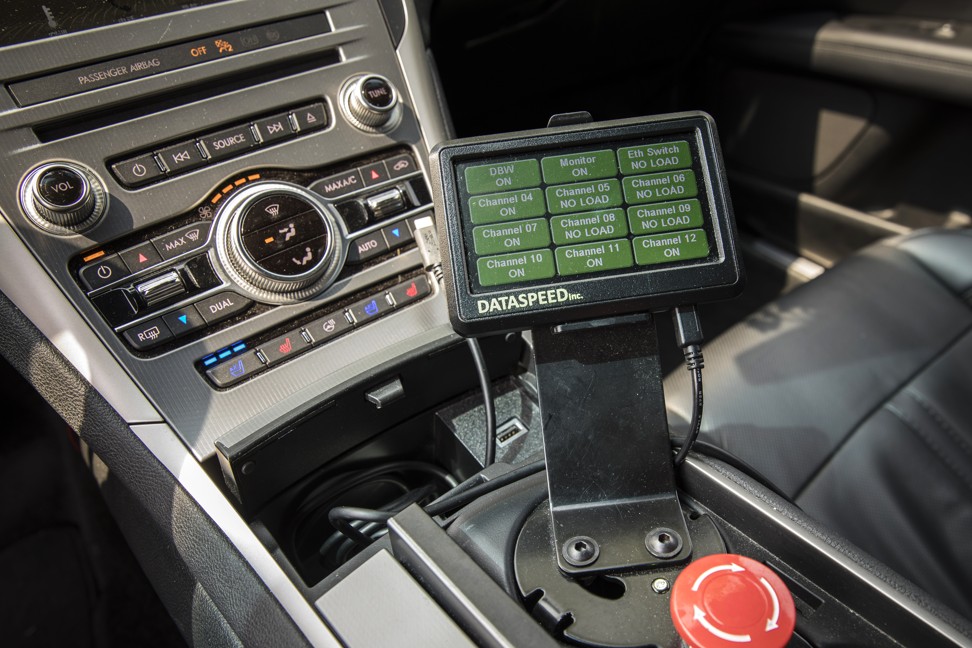
Women in tech: How Esther Wong rose from IT support in America to senior management at China’s AI champion SenseTime
- As MD of strategic investments, Wong has focused on deals within the AI ecosystem and finding long-term strategic partners
- She is also a partner in the SenseTime AI Fund, which has about 5 billion yuan of assets under management

About 20 years of banking and investment experience have taught Esther Wong the value of strong research to find gems from among the many companies in the market. That acumen is now serving her well in the complex field of artificial intelligence (AI).
Wong, 42, serves as managing director of strategic investments at SenseTime Group, the world’s most valuable AI start-up and one of Beijing’s hand-picked champions advancing China’s ambition to become a global leader in that technology.
Since joining SenseTime in April last year, Wong has focused on IoT investments and companies within the AI ecosystem. She is also a partner in the SenseTime AI Fund, which has about 5 billion yuan (US$724 million) of assets under management.
Beyond finding good deals, SenseTime wants to “empower the start-ups we invest in and help them with our technologies”, said Wong in an interview in Beijing.

She played a role in SenseTime’s investment in Chinese start-ups Ling Technology, which designs various AI consumer products, and Moviebook, which develops technologies for online video services.
Those deals reflect the premium Wong has put on companies with the same solid research background as Hong Kong Science Park-based SenseTime.
SenseTime was probably the first Chinese company she encountered as a banker that has its own fundamental research, said Wong, recalling her first visit to the AI firm’s offices in 2015.
At that time, Wong was managing director and head of equity capital markets at Bocom International. She brought a group of investors to SenseTime, where they met company founder Tang Xiaoou.
“It was the last day and final visit of our tour, so some investors were understandably tired,” Wong said. “But I was well awake, being very impressed by professor Tang Xiaoou’s research achievements.”
Tang, a professor at the Department of Information Engineering at the Chinese University of Hong Kong, founded SenseTime in 2014 with a group of long-standing academic colleagues from the university.
Wong said most start-up founders simply describe their company’s vision. “With professor Tang, he told us that SenseTime was one of the most prolific research paper publishers globally and their latest Gaussian face algorithm surpassed the accuracy of human eyes,” she said.
That achievement refers to SenseTime’s proprietary DeepID facial recognition, which was measured to have an accuracy rate of 98.52 per cent.
“I Googled the whole night about it after the visit,” Wong said. “Soon after I told professor Tang that I’d love to help him raise capital as SenseTime’s personal financial adviser.”
Wong did not elaborate on her contribution. But before she joined the company, SenseTime set a record for the highest round of financing in the AI industry in 2017 when it raised US$410 million. In 2018, SenseTime topped that with two more financing rounds totalling US$1.2 billion. The firm is currently valued at US$6 billion.
These may be heady days for the AI industry, but Wong has long been preparing for this moment.
“I really wanted my life to be more colourful, working on fancy deals,” she said, recalling the time she quit her first job in the US to seek better opportunities.
Shanghai-born Wong graduated with an associate’s degree in hospitality administration and management from the Swiss-based Glion Institute of Higher Education in 1996.
She then studied at Stony Brook University in New York, where she obtained her bachelor’s degree with a double major in economics and political science and minor in physics in 1998.
Wong’s first job, however, was as an information technology support staff at a networking equipment company in the state of Rhode Island.
The company promoted her after 10 months on the job, she said. When her boss told her it would take five years to rise to his position, Wong said she decided she didn’t want such a predictable career and quit.
She went back to New York to stay at a friend’s flat and looked for a new job, as her US visa was to expire in two months. She sent out her resume to nearly 100 companies.
Wong landed an analyst job at Dutch bank ABN Amro, where she volunteered to do shifts for trading work on Asian time zones. “Anything on Wall Street was a plus for me,” she said. “I was just too happy to have the opportunity.”
Still, those early days on Wall Street provided a challenge. Wong said she adopted the name “E Wong” to make it easier for her to deal with clients in a white male-dominated working culture.
About three years later, Wong’s hard work paid off when she was hired as the first female head of equity sales at Cazenove, the former British investment bank that was acquired by JPMorgan Chase in 2009.
After 12 years in the US, Wong said she decided to head back to Asia in 2006 when Chinese regulators resumed initial public offerings and encouraged qualified companies to list on the mainland. “I wanted to be part of the change,” she said.
She took on a vice-president role in 2006 at China International Capital Corp, followed by a stint as a director at Barclays Investment Bank in 2010. She joined Bocom International in 2015.

Wong said the culture at SenseTime promotes a results-oriented evaluation system that focuses on a person’s working capability, which is fair to both genders.
The AI unicorn already has a female director, Shi Jianping, on its autonomous driving research team, according to Wong. Based in Beijing, Shi serves as senior research scientist at the company. She was listed as one of the “Innovators Under 35” last year by the MIT Technology Review.
Wong said her role in investments at SenseTime requires her to remain curious and compassionate, as well have a solid financial skill set.
“Those three elements are not gender-specific,” she said. “But as a woman, I might understand people more than men.”